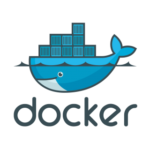 rqlite is a lightweight, open-source, distributed relational database written in Go, which uses SQLite as its storage engine.
rqlite is a lightweight, open-source, distributed relational database written in Go, which uses SQLite as its storage engine.
There have been a series of releases recently, which make deployment on Linux even easier, and significantly decrease the Docker footprint.
Full static linking
From release v6.6.3 onward, the Linux version of rqlite statically links all its dependencies, including libc and the threading library. This makes it even easier to deploy rqlite on any system running the Linux operating system — just copy rqlited to the host machine and start it. Martin Tournoij’s instructions were very helpful in this regard.
Smaller Docker footprint
 I’ve received a fair amount of feedback that the previous Docker images were rather large, and that using Ubuntu as a base image was overkill.
I’ve received a fair amount of feedback that the previous Docker images were rather large, and that using Ubuntu as a base image was overkill.
So I finally got around to migrating to using Alpine as the base image. The v6.6.4 image is the first one built on Alpine, and is only 30% the size of previous images. Nikita Gavrilov was of particular help with this work. I also improved its ENTRYPOINT configuration, making forming clusters much easier.
So if haven’t tried out rqlite yet, try out the new Docker images or download the release from GitHub.